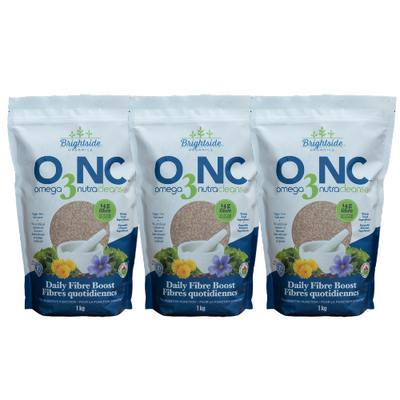Help Reduce Stress with a Healthy Lifestyle
Work. Deadlines. Family. Bills. The list goes on. We face a lot of sources of stress each and every day. To a certain extent, feeling stress is normal. But if the stress you experience causes emotional or physical symptoms, or turns into longer-term anxiety or depression, it’s time to address it.
Luckily, there are ways to manage stress naturally. Being conscious of what you put into your body and the lifestyle choices you make can help you manage or mitigate stress.
Here are 5 ways to reduce stress through a healthy diet and lifestyle.
-
Exercise Regularly: Exercise is a powerful way to fight stress, anxiety, and depression. Researchers at the Harvard T.H. Chan School of Public Health found that running for 15 minutes a day or walking for an hour reduces the risk of major depression by 26%. How does it work? Exercising promotes changes in the brain, including reduced inflammation, neural growth, and new activity patterns that promote feelings of calm and wellbeing. When you exercise, your body releases endorphins and serotonin, the powerful feel-good chemicals in your brain that make you feel happy.
- Sleep More: Much like food and water, sleep is a necessary human function for survival. When you sleep, your body undergoes critical processes to keep you healthy and functioning correctly. Following a regular sleep routine calms and restores the body, regulates mood, improves concentration, and sharpens decision-making. You have better judgment and can cope with stress more easily when you're well-rested. In fact, research has shown that most Americans would be happier and healthier if they were to sleep an extra 60 to 90 minutes per night.
- Limit alcohol and caffeine: Drinking alcohol and coffee may provide temporary happiness. But if you experience regular stress, you may want to consider limiting your intake of alcohol and caffeine. Alcohol increases levels of cortisol (i.e. the stress hormone) in your body, altering the way you perceive and respond to stress. Likewise, coffee inhibits serotonin (i.e. the happy hormone) in the brain, which can cause depression and irritability.
-
Eat less sugar and processed foods: Like caffeine, sugar offers a temporary energy boost. It’s absorbed quickly into the bloodstream causing an initial high or surge of energy. But that high wears off as the body works to process the sugar from your bloodstream. As a result, you're left feeling tired and low. Similarly, eating refined carbs—like those found in processed foods—causes blood sugar levels to spike, releasing endorphins. But like with sugar, this effect is short-lived. When blood sugar levels return to normal, you are often left feeling tired and sad. Instead, eating whole foods, like fish, veggies, and whole-wheat products can help sustain longer-term happiness.
- Increase your intake of Omega 3 fatty acids: There’s growing evidence that links mental health conditions like anxiety and depression to our body’s inflammatory response. Although an inflammatory response is a helpful function within our bodies, it becomes harmful when it is sustained beyond when it’s necessary. But, Omega 3 fatty acids, like those found in Omega 3 Nutracleanse, have been proven to assist with this prolonged inflammatory response, in turn, helping reduce and prevent the symptoms associated with anxiety and depression.
Living with chronic stress and frequent changes in mood can be challenging. Paying attention to what you eat and drink, and the choices you make every day can help you manage stress naturally.
One way to easily incorporate better health into your life is to incorporate Omega 3 NutraCleanse® into your diet. Try Omega 3 NutraCleanse, and start investing in your health today. Your health matters—so improve it.

